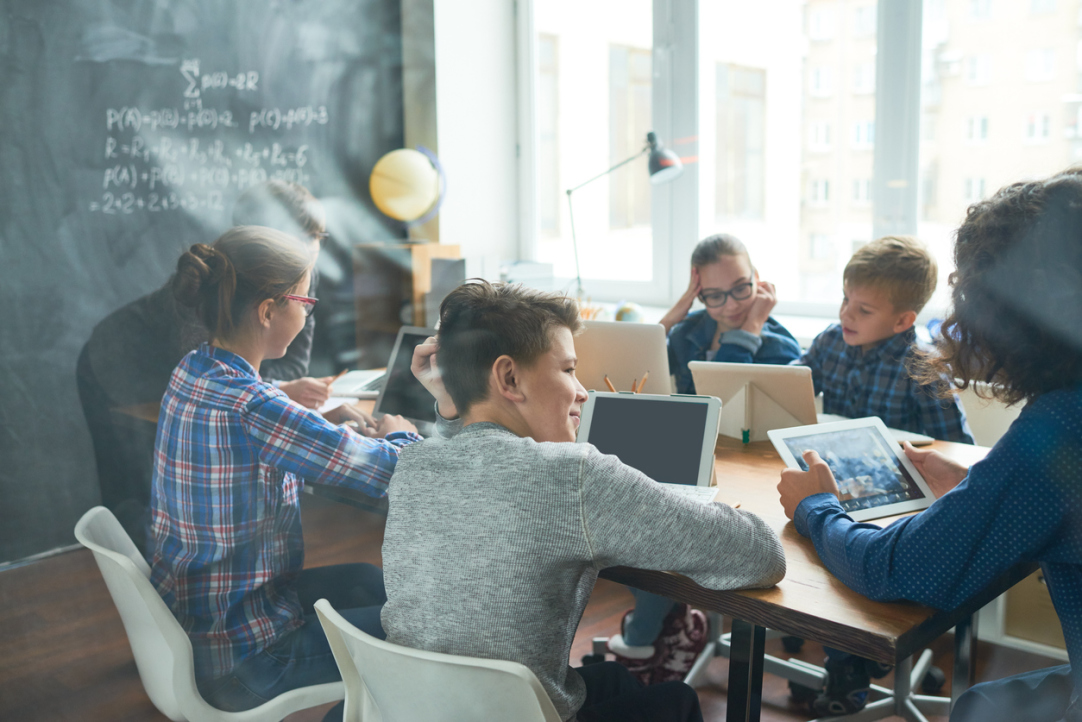HSE University Assesses the Impact of Global Trends on Russian Education

Russian respondents positively assessed trends of co-authorship between students and teachers in the learning and teaching process, the need to ensure equal access to education for all categories of the population, and the trend towards ‘humanising’ education.
The HSE University Laboratory for Educational Innovation Research has presented the results of a survey involving participants of the Competition of Innovations in Education. It also conducted interviews with experts and schoolchildren on the topic of ‘To what extent can emerging global trends in education affect the domestic system in 2022?’. The organisers of the research highlight ongoing changes using examples of Russian start-ups and companies that are already exploring new niches.
Educational designers, experts, and school students from 70 Russian regions were invited to comment on 10 global trends published in the annual Innovative Pedagogy report. They were asked to say which of the proposed trends are the most relevant for the Russian education system and what prevents the emergence or strengthening of a particular trend.
In presenting the results of the survey, the organisers emphasise that foreign and Russian education systems are changing rapidly as a result of government measures introduced during the COVID-19 pandemic. It is no coincidence that roughly half (out of 10) of the global trends presented are related to the digitalisation of education. This, in turn, guarantees that today's unique technologies will continue to develop and become part of mass education for the foreseeable future.
Another consequence of the pandemic appears to be a growing trend in education concerning emotional intelligence, management of the educational process using data on emotions and moods, and relations between participants. According to the experts, this ‘humanisation’ of education and a personality-centred approach should lead to greater personalisation and individualisation of the learning process, which will have a beneficial effect on children's success. ‘Students remember lessons better when they feel something positive during them,’ notes Artem Golikov, a 17-year-old winner of the All-Russian Geography Olympiad. The survey found that 22.8% of innovators agree with this position (the trend ‘Working with the student's mood for more effective learning').
Another fundamentally important trend (including for the Russian educational ecosystem) is the need to ensure equal access to education for all categories of the population—37.3% of experts agree with this.
In Russia and across Europe, most children have to attend educational institutions close to where they live. Consequently, the child's choice of educational institutions is automatically limited. ‘This problem is particularly acute for small towns and villages. I believe that innovative educational centres should be accessible to everyone,’ says Daniil Novoselov, a 17-year-old participant of the Club Movement, project schools, and multiple NTI Olympiads.

Diana Koroleva, author of the survey, Director of the Competition of Innovations in Education, and Head of the HSE University Laboratory for Educational Innovation Research
‘It is extremely important that the people talking about this topic today aren’t just interested researchers, but also innovators and schoolchildren themselves.’
The trend that received the most positive assessment from Russian respondents was ‘the student is the co-author of the learning and teaching processes’, with 55.6% of Russian innovators agreeing with this pedagogical principle.

Ekaterina Rybakova, co-founder and President of the Ekaterina Rybakova Foundation
Education is not only a matter of pursuing knowledge; it is about interpersonal relationships as well. ‘It is an experience of interaction between different personalities that forms something new in a child that they didn’t have before: knowledge, interest, enthusiasm, aspiration, and self-understanding. If the teacher builds this kind of developing relationship, the student becomes a co-author of the educational process.’
Young designers of the educational process who do not work in schools talk about this trend more often. Experts point out that although some projects based on co-authorship between the pupil and teacher have already been launched on the market, it is not yet possible to implement them on a mass scale. The process is hindered by lack of teacher motivation and limited school resources for creating new educational products. The focus on personalisation and digital technology can, on the other hand, have some beneficial effect.
‘While the changes can be barely seen today, they are gaining momentum—like a creek turning into a flowing river before our very eyes. Understanding the new processes currently underway helps Russian innovators to choose a niche and ride the wave, enables educational politicians to form a strategy, and allows users to find an interesting educational trajectory for themselves,’ says Diana Koroleva. The result is a reverse process: streams of Russian initiative flow into the overall stream to form a global ocean of education.
Every year, a team of scholars from the Institute of Educational Technology (the Open University, UK) and researchers from the Laboratory of Artificial Intelligence and Human Languages (the Institute of Online Education, Beijing) prepares a public Innovative Pedagogy Report. It compiles impactful trends in the field of education that have not yet been widely adopted. The 2021 report includes 10 key trends which, in the author’s opinion, will significantly influence the global educational environment.
Diana Koroleva
Head of the Educational Innovations Laboratory

